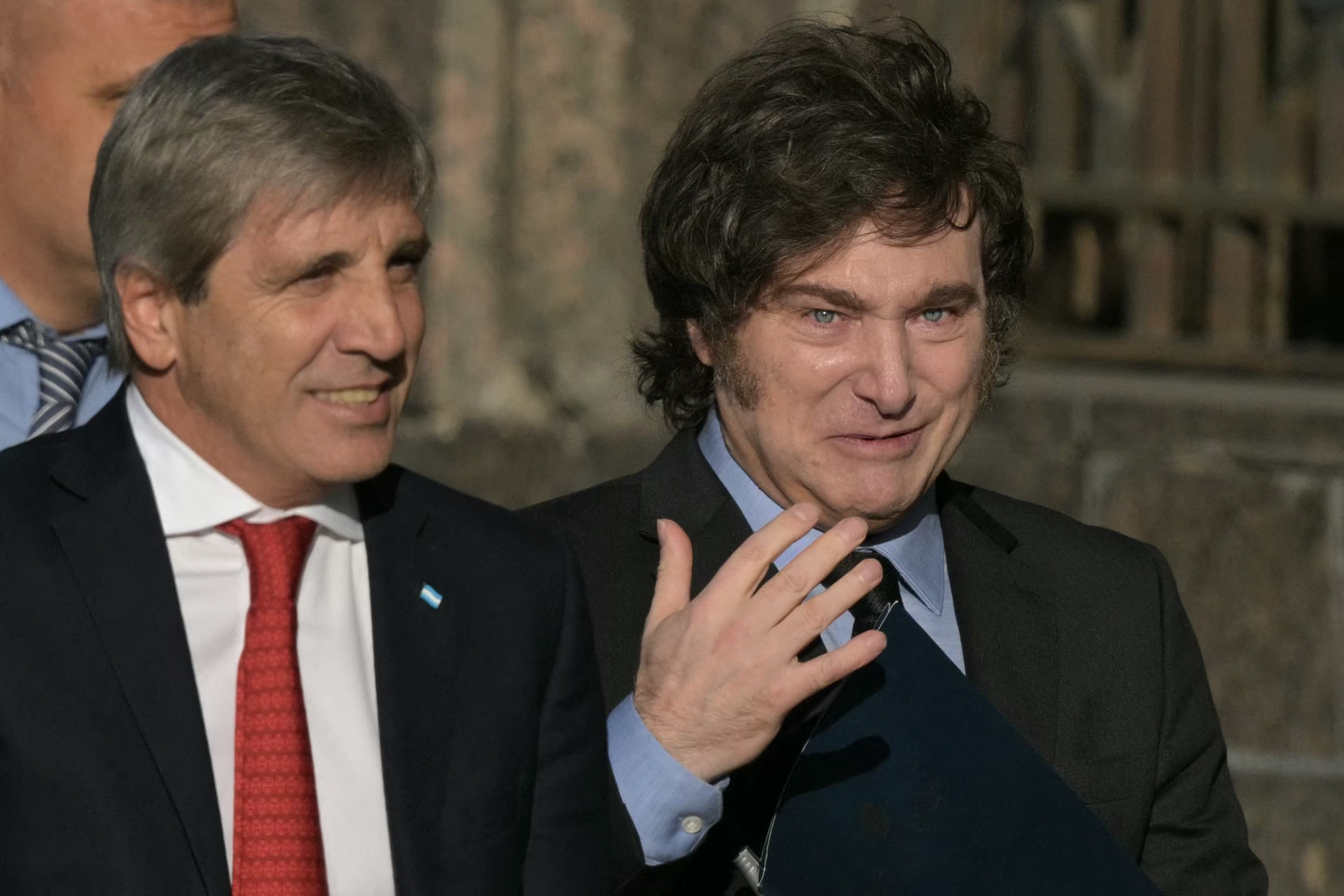- April 22, 2025
Milei’s economic miracle: Will Argentina’s recovery survive his temper?

Andres Oppenheimer
Argentina’s President Javier Milei was just included on Time magazine’s 2025 list of the world’s most influential people — and his critics were quick to downplay the news. They pointed out that this is the same magazine that once included North Korean dictator Kim Jong Un on the list and infamously picked Adolf Hitler as “Man of the Year” in 1938.
But it’s time to give Milei credit for his success in turning around Argentina’s economy. For all his faults (I’ll get to them later) Milei’s free-market shock therapy has restored hope that Argentina may be able to finally leave behind 80 years of populist policies that ruined the country.
Previous Peronist governments’ massive public spending, excessive state regulation and ridiculously high tariffs on foreign imports — like the ones President Trump wants to impose on U.S. trade partners today — had turned Argentina from one of the world’s richest nations at the beginning of the 20th century into an economically isolated and poverty-ridden country.
Inflation fell
Since Milei took office in December 2023, he has drastically reduced inflation from nearly 300% at the beginning of 2024 to 67% early this year. Argentina’s poverty rate has fallen from 53% of the population in the first half of last year to 38% in the second half. The country’s economy is expected to grow by a healthy 5% this year, according to International Monetary Fund (IMF) estimates.
“What Milei is doing is unparalleled in emerging markets,” says Alejandro Werner, director of Georgetown University’s Americas Institute and former head of the IMF’s Western Hemisphere department.
“Milei’s commitment to orthodox macroeconomic management is the highest we have seen in Latin America in a long time,” Werner told me. “We haven’t seen somebody as committed to deregulation, reducing state intervention and freeing up the private sector in many decades.”
Last week, Milei dismantled part of Argentina’s years-long exchange controls, which severely limited foreign companies from repatriating profits to their home offices, and prevented Argentines from legally keeping their savings in U.S. dollars. Such state controls discouraged investment and slowed down economic growth.
Milei’s partial lifting of Argentina’s exchange controls came after the announcement of a $20 billion IMF loan on April 11, alongside a $12 billion loan program with the World Bank and a separate $10 billion deal with the Inter-American Development Bank.
While Argentina has received massive IMF loans in the past, previous governments had misspent most of the funds on subsidies to win elections. Then, they printed money without generating new income, leading to sky-high inflation rates.
Curbing inflation
But most economists are hopeful that this time will be different, because Milei is unlikely to deviate from his pledge to curb inflation. U.S. Treasury Secretary Scott Bessent said after a brief visit to Argentina on April 14 that Milei’s economic reforms are “historic,” and that they have brought Argentina “back from the precipice.” Other Milei supporters say he has performed an “economic miracle.”
To be sure, several things could still go wrong and derail Milei’s reforms. In the unlikely event that Milei’s political party doesn’t do well in October’s legislative elections, investors may fear that the Peronist opposition could come back to power in 2027 and stay away from investing in the country.
“Politics has always derailed the Argentinian economy,” Werner, the former top IMF official, told me. “If there are fears of a government change two years down the road, it would bring back uncertainty and slow down investment.”
Milei also deserves credit for not shying away from denouncing Latin American dictators and their allies. When I asked him in an interview last year who Latin America’s worst presidents are, he mentioned the leaders of Venezuela, Nicaragua, Cuba and Colombia.
One of Milei’s biggest faults is his habit of insulting — often using the rudest terms — journalists, economists and legislators. A fierce Trump admirer — although it’s hard to understand how, as a free trader, he fails to criticize Trump’s economic nationalism — Milei echoes Trump’s verbal tirades against reputable media organizations.
Interestingly, Milei rarely attacks his leftist or Peronist critics. Instead, he lashes out against moderate and right-of-center politicians and journalists who generally support him, but occasionally criticize one of his measures.
Milei obviously has the right to respond to his occasional critics, but making serious allegations against them without showing any evidence — as he did last week when he claimed a well-known journalist is an “ensobrado,” or journalist for hire — could hurt his political future.
Milei will need all the support he can get to consolidate his current achievements. The ultimate test of his success will be whether he is able to win the 2027 elections and hand over power in 2031 to a democratically elected successor who will maintain his free-market policies. If he can get Argentina to stay the course after he leaves power, he will go down in history as one of its best presidents in recent memory.

